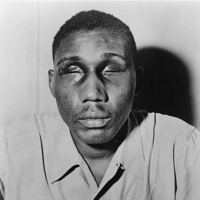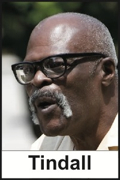Rascals case in brief
In the beginning, in 1989, more than 90 children at the Little Rascals Day Care Center in Edenton, North Carolina, accused a total of 20 adults with 429 instances of sexual abuse over a three-year period. It may have all begun with one parent’s complaint about punishment given her child.
Among the alleged perpetrators: the sheriff and mayor. But prosecutors would charge only Robin Byrum, Darlene Harris, Elizabeth “Betsy” Kelly, Robert “Bob” Kelly, Willard Scott Privott, Shelley Stone and Dawn Wilson – the Edenton 7.
Along with sodomy and beatings, allegations included a baby killed with a handgun, a child being hung upside down from a tree and being set on fire and countless other fantastic incidents involving spaceships, hot air balloons, pirate ships and trained sharks.
By the time prosecutors dropped the last charges in 1997, Little Rascals had become North Carolina’s longest and most costly criminal trial. Prosecutors kept defendants jailed in hopes at least one would turn against their supposed co-conspirators. Remarkably, none did. Another shameful record: Five defendants had to wait longer to face their accusers in court than anyone else in North Carolina history.
Between 1991 and 1997, Ofra Bikel produced three extraordinary episodes on the Little Rascals case for the PBS series “Frontline.” Although “Innocence Lost” did not deter prosecutors, it exposed their tactics and fostered nationwide skepticism and dismay.
With each passing year, the absurdity of the Little Rascals charges has become more obvious. But no admission of error has ever come from prosecutors, police, interviewers or parents. This site is devoted to the issues raised by this case.
On Facebook
Click for earlier Facebook posts archived on this site
Click to go to
Today’s random selection from the Little Rascals Day Care archives….
Click for earlier Facebook posts archived on this site
Click to go to
Today’s random selection from the Little Rascals Day Care archives….
What jurors learned from ‘Every Mother’s Worst Fear’
April 2, 2012
Among the contaminants reported in the deliberations of the first Little Rascals jury was a Redbook article used to profile Bob Kelly as a child molester. Its content never was detailed, so I looked it up (thanks yet again, Charlotte Mecklenburg Library).
Beneath the panic-inducing headline – “Why I’m Every Mother’s Worst Fear” – I was surprised to find virtually nothing relevant to day cares. Instead, the author offered insights such as:
“There are far more child molesters who operate like me than there are those who forcibly kidnap children. What the abductors do makes the headlines. What I do is more common and less noticeable. Most child molesters are established in our communities, known to others as just another good neighbor. We may even be married with kids of our own.”
An editor’s note drove home the point: “Finally, believe a child who reports a sexual overture or encounter, no matter how respectable or unlikely the accused person might seem.”
These descriptions, of course, fit the crazy-making template for ritual-abuse prosecutions:
If he seems like a child abuser, then he is.
If he doesn’t seem like a child abuser, then he is – “no matter how unlikely.”
A rare chance to watch the story unfold
 May 20, 2013
May 20, 2013
The day-care ritual-abuse era generated a wealth of words, many of which have been cited here. Aside from the epic “Innocence Lost,” however, little video evidence remains.
Just made available on our Bookshelf of Case Materials is the hour-long 1999 CBS documentary “Child Sex Scandals: Modern Day Witch-Hunt?”
Part of correspondent Mike Wallace’s “20th Century” series, it includes basic coverage of the McMartin, LIttle Rascals and Kelly Michaels day-care prosecutions, as well as the closely-akin “recovered memory” movement.
Especially salient are the 30-second comments from key combatants in the opinion arena such as Maggie Bruck, Roland Summit, Elizabeth Loftus, and Mark Pendergrast.
Edenton anything but eager to make amends for Little Rascals

Post & Courier
Woodard
Feb. 11, 2019
“Such stories aren’t proudly passed down from one generation to the next. Unlike some small Southern towns,
which often ignore the troublesome elements of their past, Batesburg-Leesville (the two towns merged in 1993) has embraced [Isaac] Woodard’s tragedy and tried to make amends….”
– From “A cop gouged out a black vet’s eyes. 73 years later, the SC town confronts it”
by Brian Hicks in the Charleston Post & Courier (Feb. 7)
If ever there was a small Southern town committed to ignoring the “troublesome elements” of its past, it is Edenton, North Carolina. Not a hint of the Little Rascals Day Care case – surely the most significant news event of 20th century Edenton – mars the civic memory.
![]()
‘How long, O Lord, will you forget me forever?’
 Sept. 12, 2012
Sept. 12, 2012
“Connie Tindall wanted to be pardoned before he died. But like Jerry Jacobs, Joe Wright and Ann Shepard before him, Tindall was buried Friday without knowing if the state of North Carolina will ever pardon members of the Wilmington 10.”
– From the Wilmington Star-News (Aug. 10, 2012)
Tindall died at age 62 – younger than Bob Kelly and Scott Privott. Will the Edenton Seven live long enough to see themselves exonerated?











0 CommentsComment on Facebook